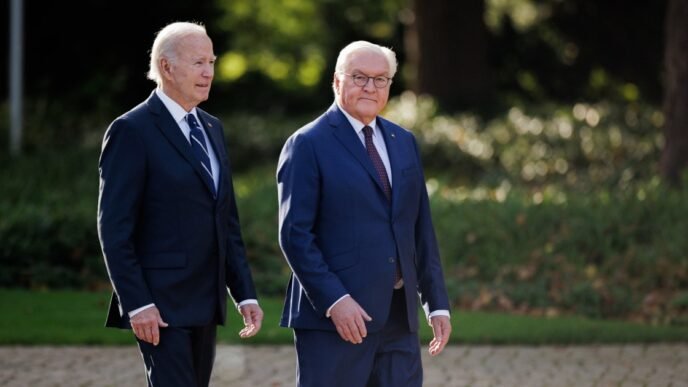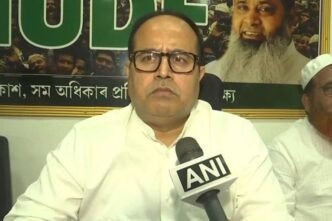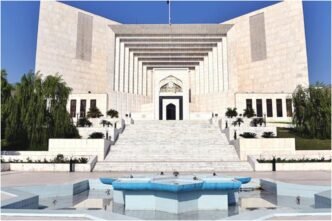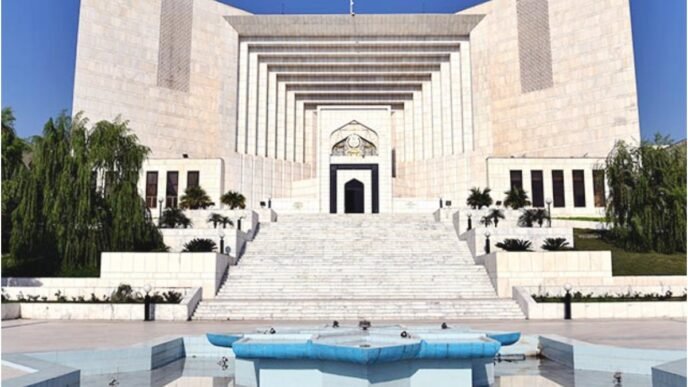PPP chooses Bilawal as its parliament leader
ISLAMABAD: As political parties work towards reaching a consensus on upcoming constitutional amendments, the Pakistan Peoples Party (PPP) has nominated its chairman, Bilawal Bhutto-Zardari, as the parliament leader of the party.
This development comes as members of the treasury benches are actively seeking the opposition’s support for the 26th constitutional amendment, which primarily addresses judicial reforms.
Speaking to the media outside the Parliament House in Islamabad on Friday, PPP leader Khursheed Shah, who chairs the Special Committee of Parliament on the constitutional draft, confirmed the nomination of Bilawal as parliament leader.
PPP leader Naveed Qamar has also submitted the necess documents for the election of the party chairman to the National Assembly Office.
According to the constitution, the parliament leader is empowered to direct party members on voting matters concerning constitutional amendments, finance bills, and the election of the prime minister or speaker based on party policy.
Shah emphasized that Bilawal’s decision would be final, expressing hope that the constitutional amendment process would proceed smoothly. He remarked, “Haste is not good; everything should be done calmly.” He recalled the 2007 Karsaz blast incident, noting that the amendment was a cause for which 177 party workers sacrificed their lives. He stated that former prime minister Benazir Bhutto had returned to Pakistan to advocate for the same amendment and vowed, “We will never let this sacrifice go in vain.”
The senior PPP leader also condemned recent allegations of harassment against parliamentarians, reiterating that the entire parliament party denounces such actions.
Shah expressed hope that the Pakistan Tehreek-e-Insaf (PTI) would submit its draft for the amendment soon, allowing parliamentarians the freedom to make informed decisions.
The proposed constitutional package aims to establish a federal constitutional court and set the tenure of the Chief Justice of Pakistan (CJP) to three years.
The government had attempted to present the bill for constitutional amendments last month, but it faced strong opposition from both its allies and opposition members, prompting the administration to initiate a consultation process.
To pass the constitutional amendments, the government requires a two-thirds majority in parliament, and sources indicate a shortfall of 13 votes in the National Assembly and nine in the Senate.
Election Act cannot nullify July 12 ruling on reserved seat case: SC
In a recent clarification, the Supreme Court reaffirmed that changes to the…













